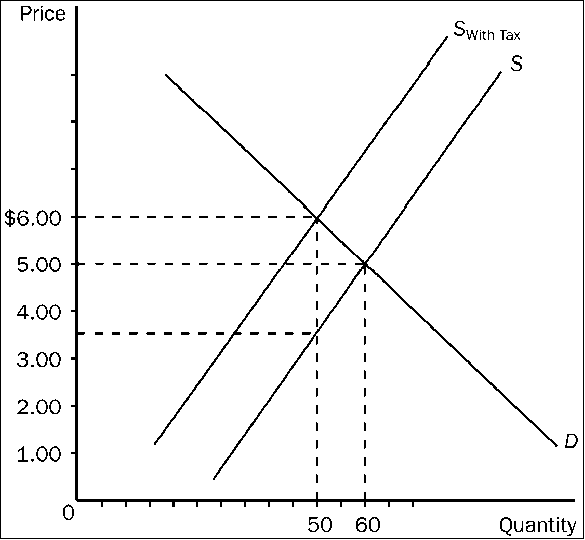The Marginal Product of Labor is
A) the change in total product resulting from an extra unit of labor, holding other factors constant.
B) the ratio of output to the number of workers used to produce that output.
C) the amount of output that can be produced by a given amount of labor.
D) equal to the marginal product of labor when the average product is increasing.
A
You might also like to view...
If the marginal utilities of the first 4 candy bars consumed are 10, 12, 9, and 7, respectively, the total utility derived from consuming 3 candy bars is
a. 3 b. 9 c. 25 d. 31 e. Total utility cannot be derived from marginal utility. On the other hand, marginal utility can be derived from total utility.
Figure 4-22

Refer to . The equilibrium price in the market before the tax is imposed is
a.
$1.00.
b.
$3.50.
c.
$5.00.
d.
$6.00.